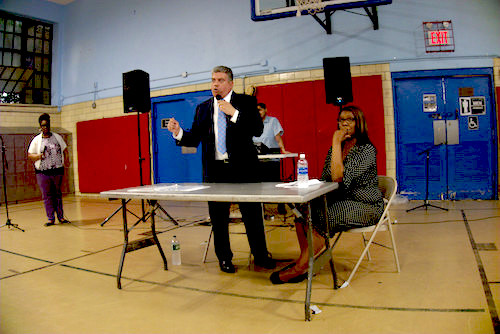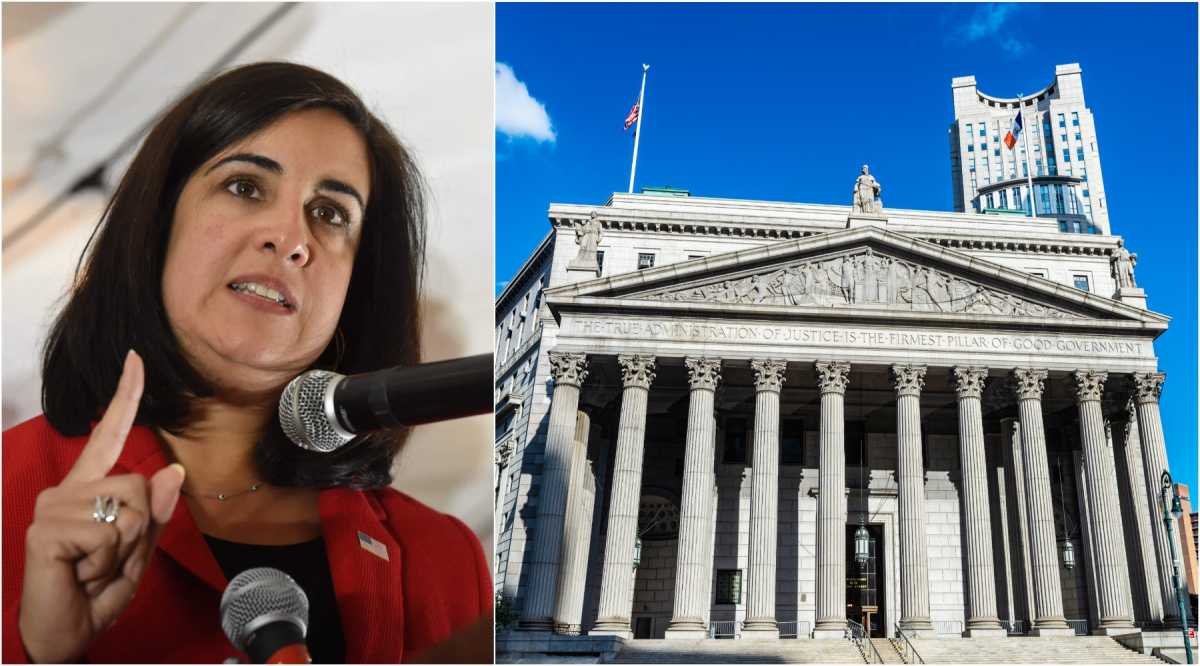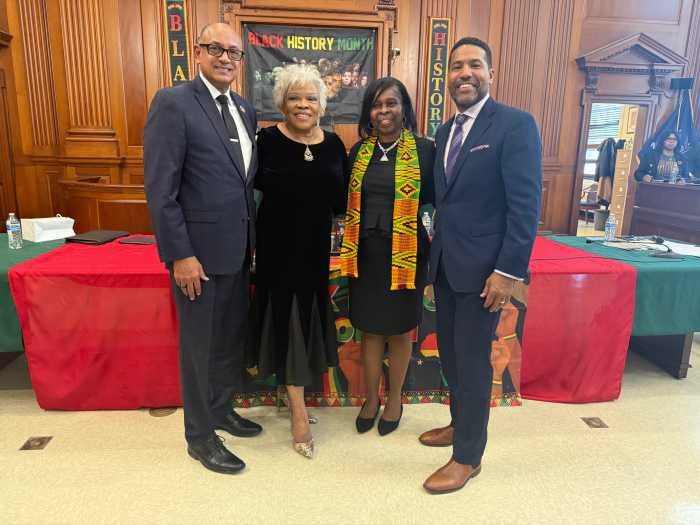Tensions ran high on Friday night at Sunset Park Recreation Center, 4200 7th Avenue, where the community watchdog group El Grito de Sunset Park held a town hall meeting to examine “Broken Windows” policing.
For the roughly 150 people who packed into the rec center’s gym, much of the wrath was aimed at Brooklyn District Attorney Eric Gonzales and New York City Public Advocate Letitia James. Also in attendance was State Assemblyman Felix Ortiz (D-Sunset Park, Red Hook).
Among the passionate audience members was Hertensia Petersen, the aunt to Akai Gurley, 28, who Police Officer Peter Liang shot in a darkened stairwell at the Louis Pink Houses in East New York on Nov. 20, 2014. Liang was originally charged and convicted of manslaughter, but late District Attorney Ken Thompson recommended reducing the charges to criminally negligent homicide and that Liang not do jail time. The courts agreed.
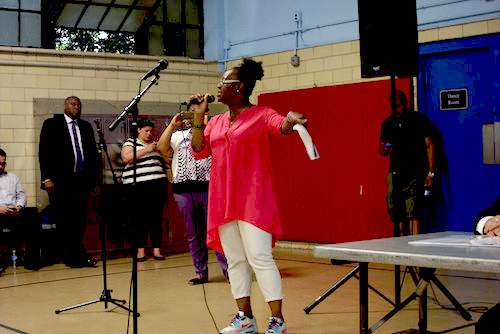
“To this day, my family is still suffering, Akai’s mom is still suffering, because of this injustice that took her child,” said Petersen. “It hurts, not only as an aunt, but it hurts being part of a community, when these police officers come into your community.”
She then pointed to Gonzalez and asked him about the recommendation for no jail time for Peter Liang.
Gonzalez responded that while “it was a tragedy what happened to Akai, it was a crime,” the mitigating circumstances of the case showed that Liang didn’t deserve jail time, and that he “should not be held responsible for all the wrongdoings of other officers” with much less mitigating circumstances.
But some audience members objected to Gonzalez’s answer. “He’s a killer,” one person shouted, while another yelled, “Lies.”
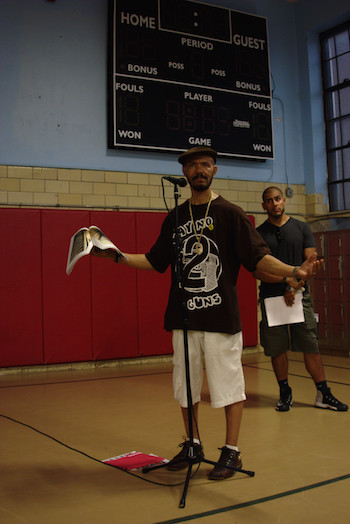
Also in attendance was Nicholas Heyward Sr, whose son Nicholas Naquan Heyward Jr. was shot by housing police officer Brian George while playing with his friends in Brooklyn in 1994. Heyward spoke to Gonzalez, James, and the audience on the death of his son and the importance of police accountability.
“Broken windows should be a main priority for every elected official,” said Heyward, who created the Nicholas Naquan Heyward Jr. Memorial Foundation and works with the Stolen Lives Project, which aims to document killings by police. “If they don’t have broken windows on their agenda, we don’t need them in office.”
James, while more popular at the meeting than Gonzalez, was taken to task when she stated her favoring Mayor Bill de Blasio‘s NextGeneration program which privatizes some of New York City Housing Authority’s (NYCHA) property.
While audience members generally applauded her views on immigration and broken windows, they at times accused her of blaming the Trump administration for the issues. There were disputes between James and the audience over how many people the Obama administration deported, as well.
Audience members also alleged that the New York Police Department is collaborating indirectly with federal ICE (Immigration & Customs Enforcement) agents by engaging in broken windows policing.
“This city is supposed to be a sanctuary city,” said Dennis Flores, of El Grito de Sunset Park, “and undocumented people are not protected.”
“Broken Windows” theory was first developed in 1982 by social scientists James Q. Wilson and George L. Kelling. The theory stated that the “disorder” caused by petty crime (vandalism, graffiti, turnstile-jumping, etc.) led to more serious crime in communities, and that police resources were more efficient when used to address less serious crimes, or “quality of life” infractions.
Police and law enforcement officials have long credited “Broken Windows” in helping bring down the crime rates in the 1980’s and 90s when the city averaged around 2,000 murders a year. However, criminal justice reform advocates argue, and the courts agree, that the use of ‘Broken Windows” unfairly targets communities of color.
According to a 2016 City Department of Investigation study, police issued 1.8 million quality-of-life summonses between 2010 and 2015. The report was unable to find a correlation between “quality of life” infractions and levels of violent crime.
The Coalition to End Broken Windows, a network of several community groups, advocates for an end to “broken windows” policing as well as “quality of life” arrests and summonses.
The group argues for the clearing of all “broken windows” summonses warrants, a free Metro Card program for low-income New Yorkers, removal of the cap on street vendor permits, and a reduction of the NYPD headcount.
“We think that it’s time that the residents and the community members, to be most effective, have the biggest voice in how we do this,” said Josmar Trujillo, cofounder of New Yorkers Against Bratton and part of the Coalition. “There are solutions to some of these quality of life issues that don’t have a gun and a badge.”


